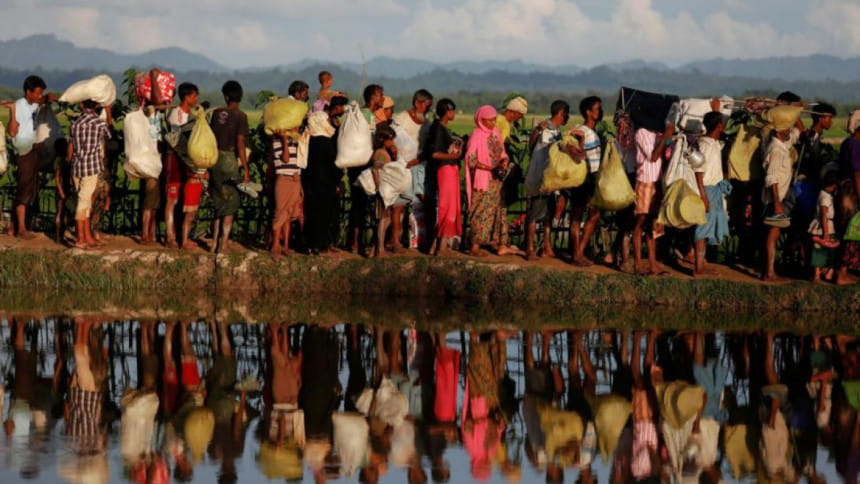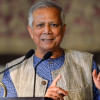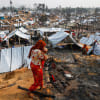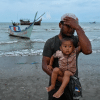UN urges int’l help for 1.2m Rohingyas

Top UN agency leaders have asked the international community to continue supporting the critical needs of 1.2 million people, Rohingya refugees and their local host communities, in south-eastern Bangladesh.
In a joint statement issued yesterday, the heads of UN agencies reiterated their commitment to keep working towards safe and sustainable solutions for the Rohingya refugee crisis and noted the UN efforts in Myanmar to help create conditions conducive to their return.
United Nations Under-Secretary-General for Office for the Coordination of Humanitarian Affairs (OCHA) and Emergency Relief Coordinator Mark Lowcock, Director General of the International Organisation for Migration (IOM) António Vitorino, and UN High Commissioner for Refugees Filippo Grandi made the commitment at the end of their three-day visit to Bangladesh.
The heads of OCHA, IOM and UNHCR arrived in Dhaka on April 24 to highlight the need for humanitarian support.
In Dhaka on Wednesday, the delegation held talks with senior government officials, including Prime Minister Sheikh Hasina, Foreign Minister AK Abdul Momen and State Minister for Foreign Affairs Md Shahriar Alam and then travelled Cox's Bazar on Thursday-Friday to assess preparations in refugee camps for the monsoon and cyclone seasons.
After visiting the camps in Cox's Bazar, the UN officials highlighted the importance of supporting the Rohingyas during their time in exile, especially in expanding opportunities for learning and skills training.
They noted that almost half of the 5.4 lakh refugee children under the age of 12 were missing out on education altogether. The other half only has access to very limited schooling. Only a handful of teenagers had access to any form of education or training.
"This remains one of the world's biggest refugee crises," said Filippo Grandi. "There are more than 900,000 Rohingya refugees in Bangladesh, most of whom fled Myanmar in 2017. I saw a great deal of progress, but their situation, especially for women and children, remains fragile. With the current crisis almost two years on we must give refugees the chance to learn, build skills and contribute to their communities while also preparing for reintegration when they can return to Myanmar," said Grandi. "The future of the Rohingya refugees hangs in the balance."
"The Rohingya community is made up of so many young people who are in need of hope and opportunities if they are to build successful lives upon their return to Myanmar," António Vitorino added.
The UN leaders discussed with government officials ways the international community can further support preparedness and response efforts for the cyclone and monsoon seasons.
At the camps, they assessed ongoing work to address weather-related risks, including strengthening of shelters, improvement of infrastructure, and the training of volunteers. They recognised the critical role the refugees themselves were playing in these efforts.
The UN leaders met families going through the joint government and UNHCR biometric registration process and were receiving documents that confirm their identity in Bangladesh and enhance their right to access services and protection.
They also witnessed an innovative World Food Programme e-voucher system which gives refugees the ability to choose from an array of locally-resourced food staples and fresh vegetables in eight designated stores.
"The first time I was in Cox's Bazar in 2017, hundreds of thousands of Rohingyas had just fled across the border from the most appalling brutality imaginable," said Mark Lowcock.
"I met with children who had seen parents killed. Women who were just holding on told me horrendous stories of sexual violence they had survived.
"During this trip, we met with a remarkable group of male refugee role models as well as women volunteers who are supporting those who have survived this brutality and also working to prevent sexual and domestic violence in the camps. A wise, far-sighted approach would see a stronger focus on helping the refugees not just recover from the horrors they have experienced, but also to prepare for a dignified longer-term future," said Lowcock.

 For all latest news, follow The Daily Star's Google News channel.
For all latest news, follow The Daily Star's Google News channel. 








Comments